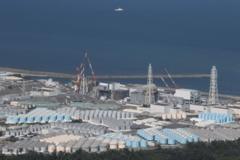Activists and community members are staging protests in Ontario's Ring of Fire, showcasing their discontent with a law that they feel overlooks Indigenous sovereignty. Jeronimo Kataquapit, a young member of the Attawapiskat First Nation, has set up camp in the region to protest. The area, rich in minerals, has been designated as a "special economic zone" to attract mining investments.
Prime Minister Carney's controversial One Canadian Economy Act has opened discussions on resource development in the mineral-rich region, with potential costs and benefits for Indigenous nations. Kataquapit highlights the law's shift from consultation towards seeking consent, essentially regarding Indigenous territories as exploitative landscapes rather than homes.
With an estimated C$90 billion in mineral wealth, future development remains uncertain. Though no projects have been officially confirmed yet, they range from pipelines to carbon-capture initiatives. Critics, including environmental rights advocates, assert that the legislation may streamline processes, potentially bypassing crucial environmental assessments.
Indigenous leaders, such as Ontario Regional Chief Abram Benedict, critique the public consultation processes which oftentimes disregard Indigenous ecological knowledge. Canada’s constitution mandates comprehensive consultation with Indigenous nations, yet these discussions have frequently devolved into debates over the extent of consent required for development.
Justice Minister Sean Fraser has stated that Indigenous consultations do not equate to a veto power over proposed projects, while experts like Pamela Palmater argue that mere dialogue fails to satisfy the obligations established by the Supreme Court regarding Indigenous rights.
The economic and political dimensions of this conflict have materialized into costly confrontations. Recent court documents reveal millions spent policing Indigenous protests against pipeline ventures and economic disruptions caused by blockades in recent years. This turbulence builds pressure on PM Carney, who recognizes the necessity of engaging Indigenous leadership in economic recovery discussions, including planned consultations with Indigenous representatives.
Amid the tension, Chief of Assembly First Nations Cindy Woodhouse Nepinak underscores a united front among chiefs advocating for amendments to the legislation aimed at protecting Indigenous rights.
However, skepticism looms. Chief Alvin Fiddler of the Nishnawbe Aski First Nation has conveyed strong resistance against Carney's proposed laws, indicating a deeper resentment towards the provincial government’s approaches to consultation. Fiddler's call for accountability was echoed by nine First Nations launching a constitutional challenge over the implications of both provincial and federal legislation threatening their self-determination.
Despite the hurdles, some Indigenous leaders express a willingness to collaborate, emphasizing a balance between economic growth and environmental stewardship. As discussions unfold, the future of Canada's nation-building initiatives will heavily hinge on the government's ability to foster genuine partnerships with Indigenous communities while respecting their rights and livelihoods.




















